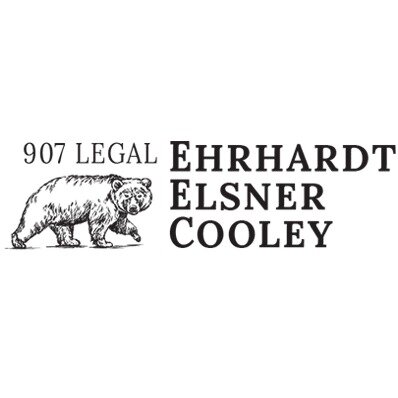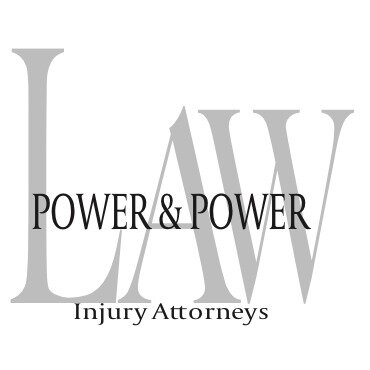Best Travel Accident Lawyers in Alaska
Share your needs with us, get contacted by law firms.
Free. Takes 2 min.
Or refine your search by selecting a city:
List of the best lawyers in Alaska, United States
About Travel Accident Law in Alaska, United States
Travel accident law in Alaska covers incidents that occur while individuals are traveling, including motor vehicle accidents, boating accidents, aviation incidents, and injuries on public transportation. Due to its unique geography, climate, and reliance on air and sea transportation, Alaska presents distinctive travel risks. The law addresses compensation for injuries, wrongful death claims, and the responsibilities of insurance companies, transportation providers, and other parties involved in travel accidents. Travelers, both residents and visitors, may face legal complexities distinct from those in other states due to Alaska's remote areas and challenging travel conditions.
Why You May Need a Lawyer
There are common scenarios in which consulting a lawyer is advisable following a travel accident in Alaska. Many individuals seek legal assistance after being injured in an auto collision, snowmobile accident, ferry or boat mishap, or small aircraft incident. Legal help can be crucial when fault is disputed, injuries are severe or long-term, insurance is denied or delayed, or multiple parties are involved. A lawyer can also navigate cases involving tourists, non-residents, or commercial insurers. Additionally, since accidents can happen in isolated locations far from urban centers, a legal expert with Alaskan experience can help protect your rights and recover compensation.
Local Laws Overview
Alaska applies specific laws relevant to travel accidents, including the application of comparative fault rules. This means a party’s compensation can be adjusted based on their level of responsibility for the accident. Alaska also has statutes of limitations, typically giving you two years from the date of the accident to file a personal injury claim. Motor vehicle insurance requirements are strictly enforced, and uninsured or underinsured driver coverage can influence your options. Unique to Alaska, accidents in remote areas may involve search and rescue laws, special reporting procedures, and federal regulations for aviation or maritime accidents. Understanding these legal frameworks is important for anyone navigating a travel accident claim in the state.
Frequently Asked Questions
What should I do immediately after a travel accident in Alaska?
Ensure safety first, seek medical attention, document the scene, exchange contact and insurance information, and report the accident to the appropriate authorities. If possible, take photos and collect witness details.
Do I need to report a vehicle accident to the police?
Yes, Alaska law requires you to report motor vehicle accidents involving injury, death, or property damage exceeding $2,000. Prompt reporting can be critical for insurance and legal claims.
How does Alaska’s comparative fault rule affect my claim?
Your compensation may be reduced by your percentage of fault. For example, if you are found 20 percent at fault, your damages are reduced by 20 percent.
What if the accident occurred in a remote location?
Remote accidents can involve additional reporting requirements and specialized rescue or emergency services. Legal complexities can increase, especially if multiple jurisdictions are involved.
What are the time limits for filing a claim?
The statute of limitations for personal injury resulting from a travel accident in Alaska is generally two years from the accident date. Delaying may forfeit your right to compensation.
How are out-of-state visitors affected?
Visitors have the same legal rights as residents but may face additional challenges with unfamiliar laws and distance from Alaska. Legal representation familiar with both Alaska and your home state can be helpful.
What if the at-fault driver is uninsured?
You may be able to file a claim through your own uninsured or underinsured motorist coverage. A lawyer can help identify all avenues for compensation.
Are travel accidents involving ferries or planes handled differently?
Yes, these cases may involve federal, maritime, and state laws, as well as specialized insurance policies. Experiencing legal assistance is important due to the complexity of such cases.
Can I recover damages for pain and suffering?
Yes, Alaska law permits claims for economic and non-economic damages, including pain and suffering, emotional distress, and loss of enjoyment of life.
How can a lawyer help with insurance negotiations?
Lawyers understand claim processes, can negotiate with insurers, collect evidence, and help ensure that you receive fair compensation for injuries or losses.
Additional Resources
For those seeking more information or support, the following Alaska-based organizations and agencies can be helpful:
- Alaska Department of Transportation & Public Facilities
- Alaska State Troopers
- Alaska Court System - Self-Help Services
- Alaska Division of Insurance
- Alaska Bar Association - Lawyer Referral Service
- Alaska Department of Health & Social Services (for victim assistance)
- National Transportation Safety Board (for aviation and major transportation incidents)
Next Steps
If you have experienced a travel accident in Alaska and require legal assistance, start by documenting all aspects of your accident and injuries. Notify your insurance provider, and keep records of all communications and expenses. Seek a qualified attorney with experience in Alaska’s travel accident laws and a track record with similar cases. Many offer free initial consultations and contingency fee arrangements, meaning you only pay if you win your case. Contact local bar associations or search for attorneys specializing in personal injury or travel accident claims. Prompt action is important to preserve your rights and maximize your chances for a successful outcome.
Lawzana helps you find the best lawyers and law firms in Alaska through a curated and pre-screened list of qualified legal professionals. Our platform offers rankings and detailed profiles of attorneys and law firms, allowing you to compare based on practice areas, including Travel Accident, experience, and client feedback.
Each profile includes a description of the firm's areas of practice, client reviews, team members and partners, year of establishment, spoken languages, office locations, contact information, social media presence, and any published articles or resources. Most firms on our platform speak English and are experienced in both local and international legal matters.
Get a quote from top-rated law firms in Alaska, United States — quickly, securely, and without unnecessary hassle.
Disclaimer:
The information provided on this page is for general informational purposes only and does not constitute legal advice. While we strive to ensure the accuracy and relevance of the content, legal information may change over time, and interpretations of the law can vary. You should always consult with a qualified legal professional for advice specific to your situation.
We disclaim all liability for actions taken or not taken based on the content of this page. If you believe any information is incorrect or outdated, please contact us, and we will review and update it where appropriate.
Browse travel accident law firms by city in Alaska
Refine your search by selecting a city.















